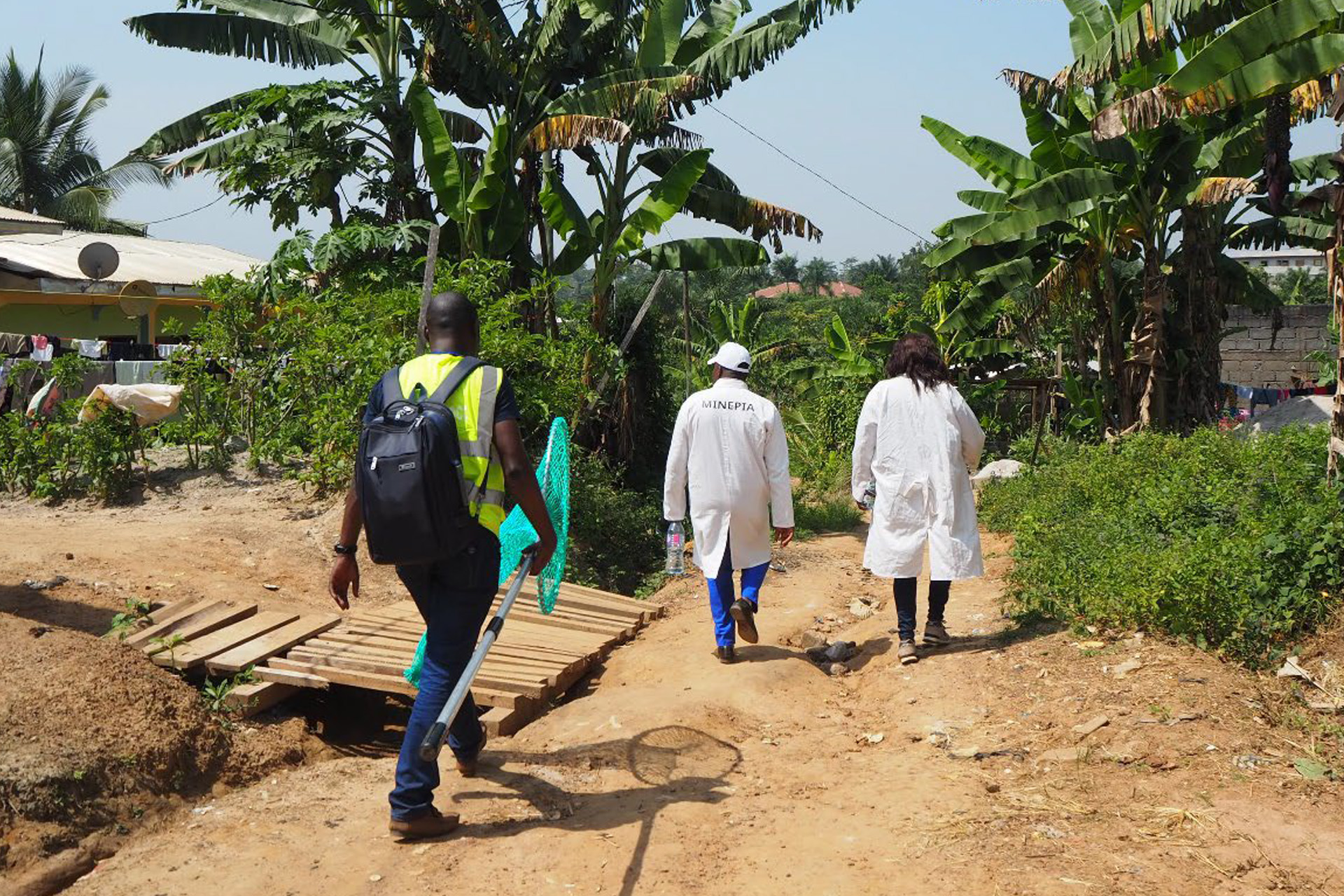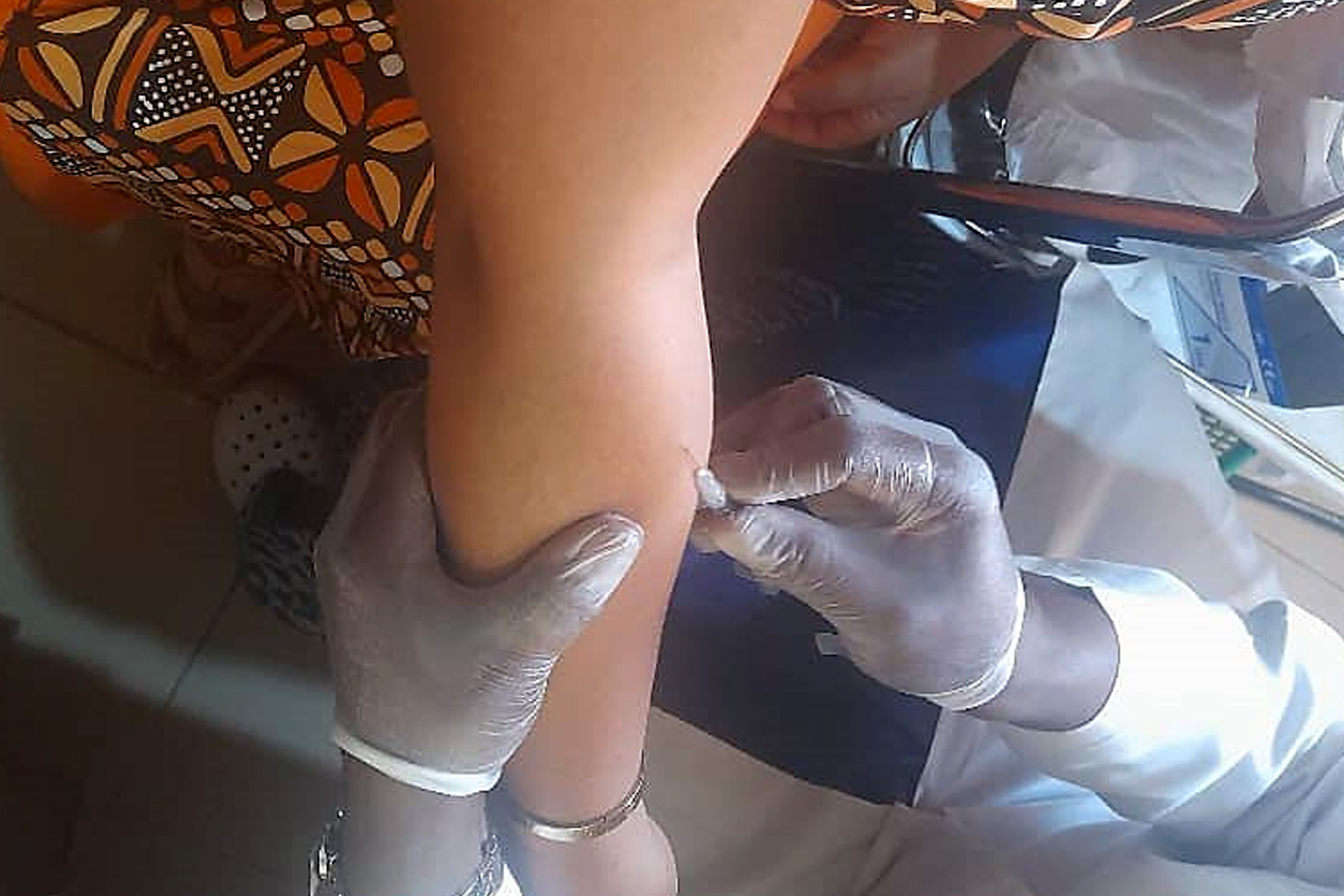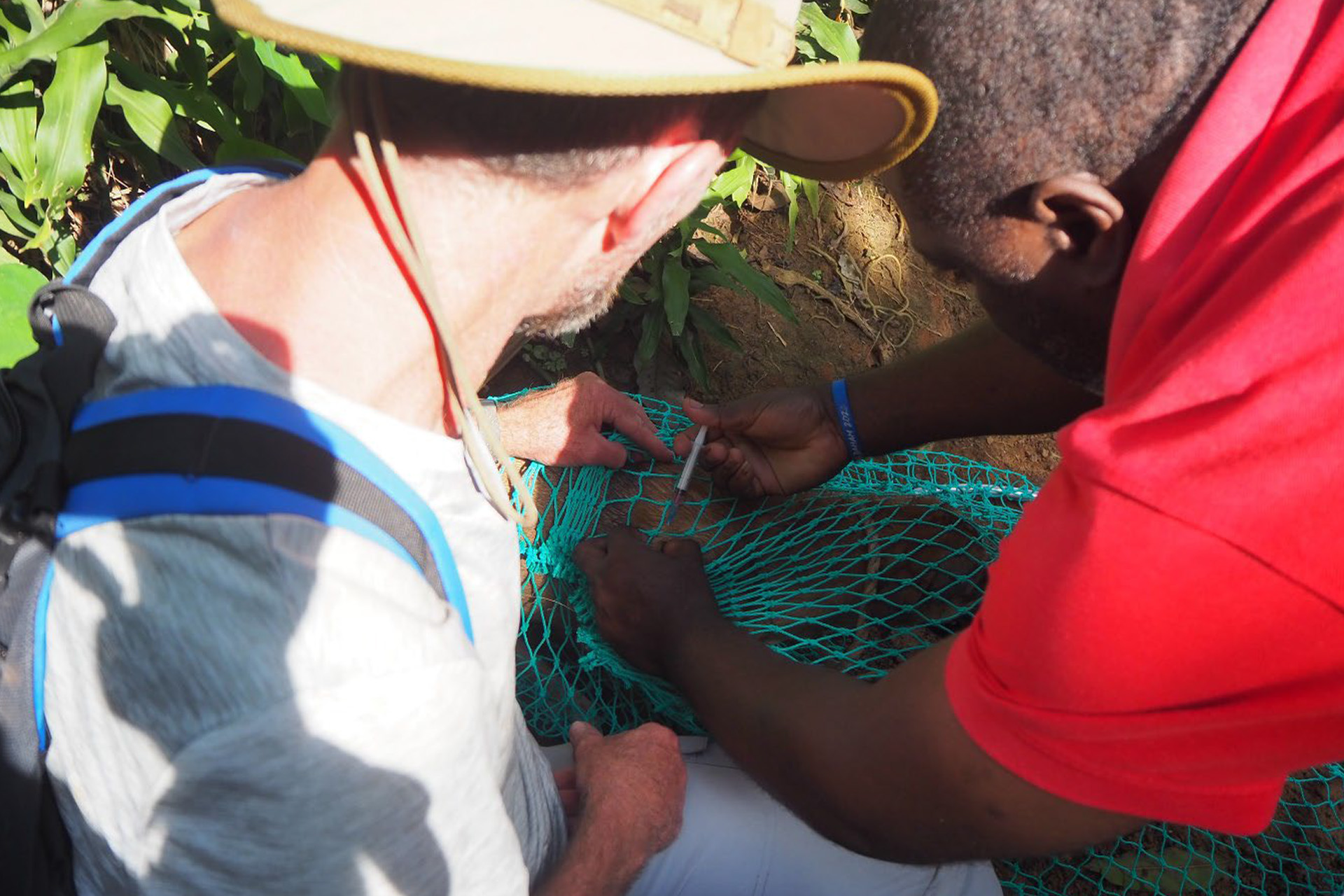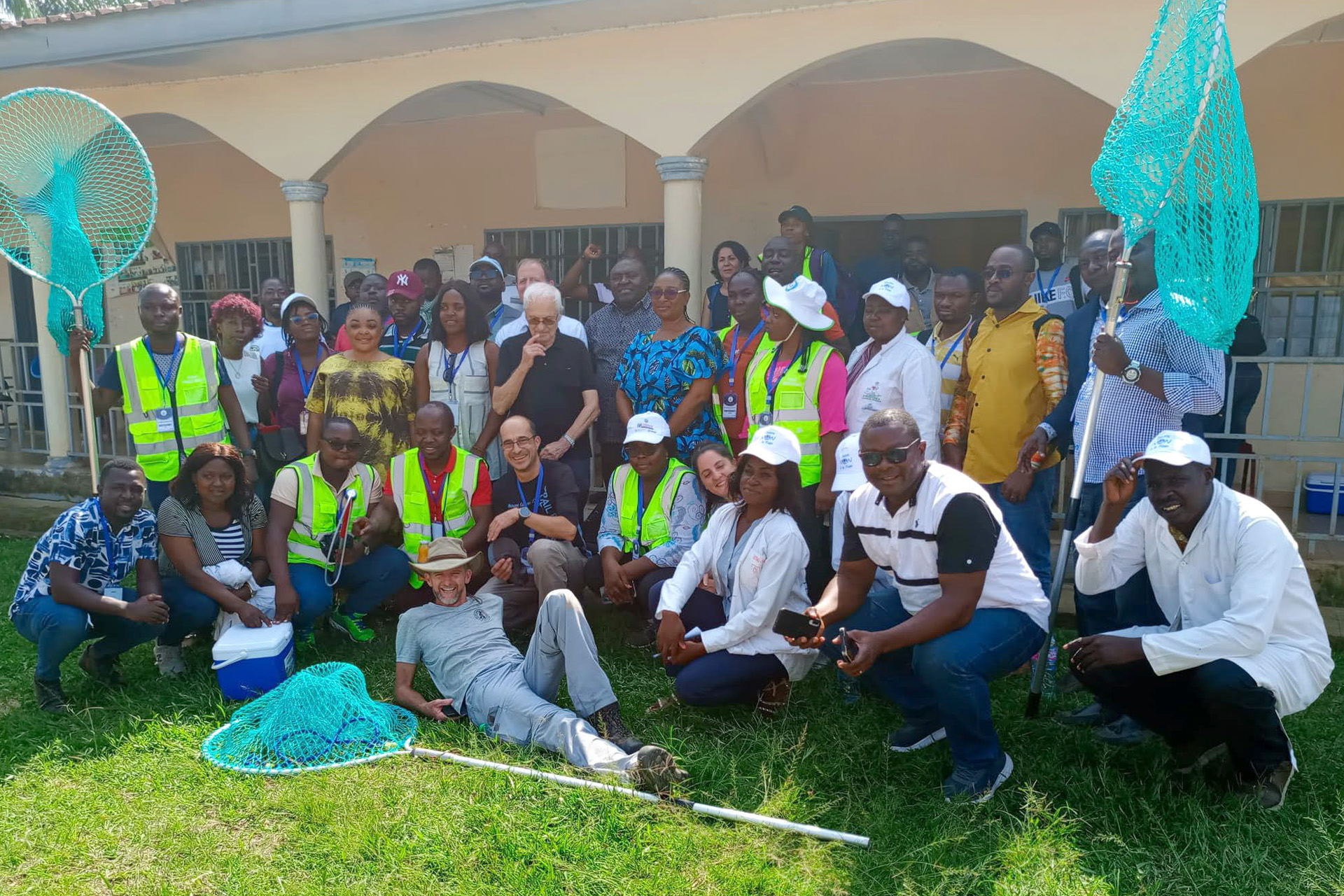In December 2023, multiple partners1 conducted an intensive 11-day course on rabies surveillance and control in the capital city of Cameroon, Yaoundé. This training brought together 25 professionals working in different sectors (human health and animal health) and countries (Cameroon, Central African Republic, Chad, Congo, Democratic Republic of the Congo). After completing extensive online preparatory sessions in the preceding months, course participants gathered in person to put their theoretical knowledge into hands-on experience – in the classroom, the laboratory and the field. This covered different elements of a rabies programme including rabies control planning and management, data collection and sharing, diagnostics, post-exposure prophylaxis for exposed individuals, human rabies case management, mass dog vaccination, and community awareness and engagement.

Photo credit: WHO/Deborah Nadal
The course presented participants with the most common challenges that rabies-endemic countries experience.
Challenge 1. Provision of post-exposure prophylaxis (PEP) is the emergency response to rabies exposure. It prevents the virus from entering the central nervous system, which would invariably result in death. Depending on the severity of the contact with the suspected rabid animal, PEP may consist of thorough wound washing, the administration of rabies immunoglobulin or monoclonal antibodies for quick passive immunization, and a course of rabies vaccination.
Countries and their communities are faced with the unavailability of vaccines in remote areas and their unaffordability for low-income individuals. Participants visited the rabies clinic of the Centre Pasteur du Cameroun in Yaoundé, where health professionals guided them through the PEP process, explaining what to do for each of the three rabies exposure categories and demonstrating how to perform intradermal vaccination.

Photo credit: WHO/Deborah Nadal
Challenge 2. Mass dog vaccination is the most cost–effective strategy for preventing rabies in people and animals such as livestock because it stops transmission at its source. Moreover, it reduces the need for PEP, since 99% of human rabies exposures occur through rabid dogs.

Photo credit: WHO/Deborah Nadal
The course framed mass dog vaccination as a matter of human public health as well as animal health, bringing professionals of both sectors together in conversations on how to ensure that campaigns reach all at-risk communities, especially those who have many free-roaming dogs and live far away from health care facilities where PEP is provided. The training covered all aspects of mass dog vaccination, from dog population management to the different strategies to reach different dog groups, the implementation of campaigns and the practicalities of catching and vaccinating dogs (understanding dog behaviour, safely handling dogs, vaccinating puppies, etc.). Discussion also involved the important topic of cross-border mass dog vaccination campaigns, to ensure concerted efforts regionally and globally. Participants put this knowledge into practice in the field in the city of Mfou. There, local authorities had previously announced the 2-day campaign that involved door-to-door vaccination, central-point vaccination, and the vaccination of free-roaming dogs on the road and around a slaughterhouse.
Challenge 3. Community engagement
During the course, participants were invited to reflect on the socio-cultural aspects of rabies in Cameroon and their respective countries. They were introduced to the methods used in anthropological research and risk communication. Dr Deborah Nadal presented WHO’s position on rabies and One Health and the associated OpenWHO courses.
At the end of the course, the enthusiasm and satisfaction of the participants were palpable, not only because of the knowledge gained but also especially due to the realization that dog-mediated human rabies can be eliminated if stakeholders at all levels work together. The importance of One Health collaboration and teamwork comes out strongly in the words of Alex Théodore Tonye, a human health professional working on cholera control who during this course approached free-roaming dogs for the very first time: “As we say in Cameroon when we want to say goodbye: we are together.” His message is shared by Nathan Kutshi, from the Democratic Republic of the Congo: “Whatever our problems and difficulties, we have decided to give our best by participating actively in this training so that we can put our knowledge to use in our communities to save human lives. Let’s be Rage Champions!”

is a crucial pillar of ZERO BY 30: the global strategic plan to end human deaths from dog-mediated rabies by 2030. Communities need to be considered the main stakeholders of any rabies control plan implemented locally and, with them, it is necessary to understand their dog-keeping practices, identify the barriers to PEP and develop sustainable mass dog vaccination strategies.
1 The course was organized by the Institut Pasteur in Paris, the Centre Pasteur in Cameroon, the Directorate of Veterinary Services in Cameroon, the Ministry of Livestock, Fisheries and Animal Industries, and the Ministry of Public Health, in collaboration with the Fondation Health Sciences eTraining, Lausanne University, Glasgow University, the Swiss Tropical and Public Health Institute and the Pasteur Network, with the support of WHO, the World Organisation for Animal Health, the Food and Agriculture Organization of the United Nations and the Global Alliance for Rabies Control.
